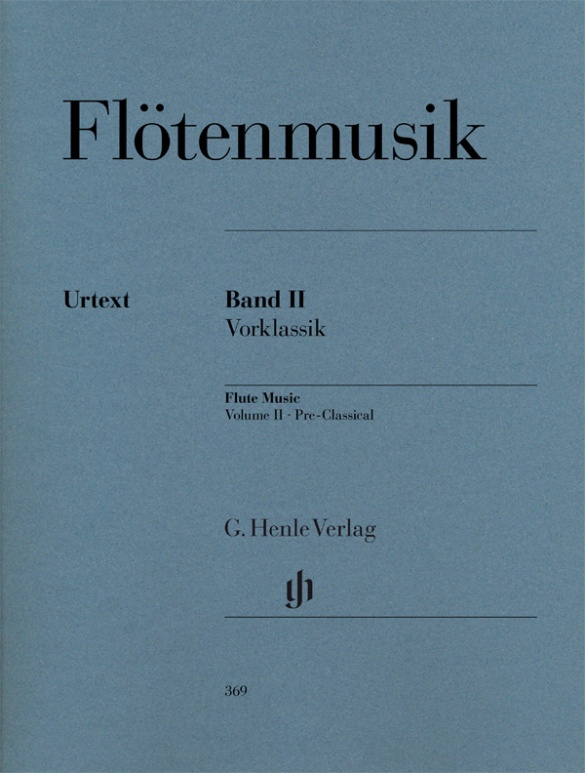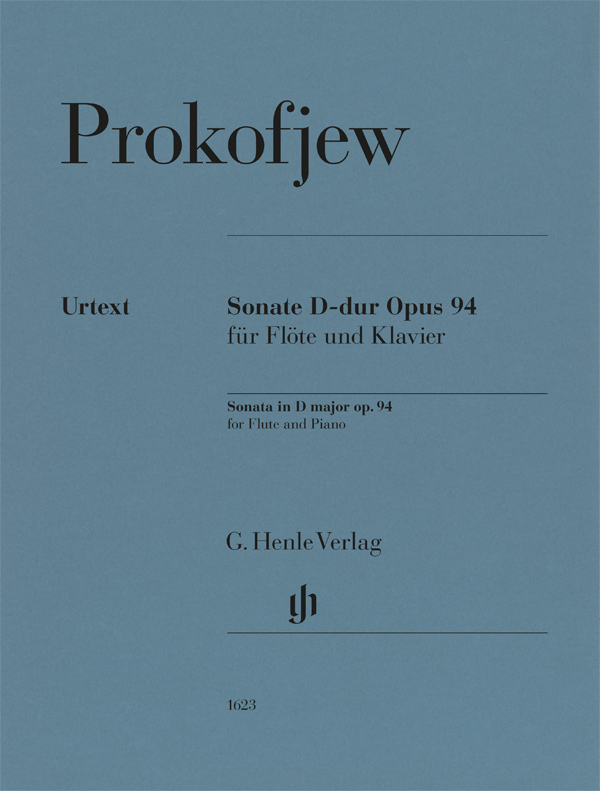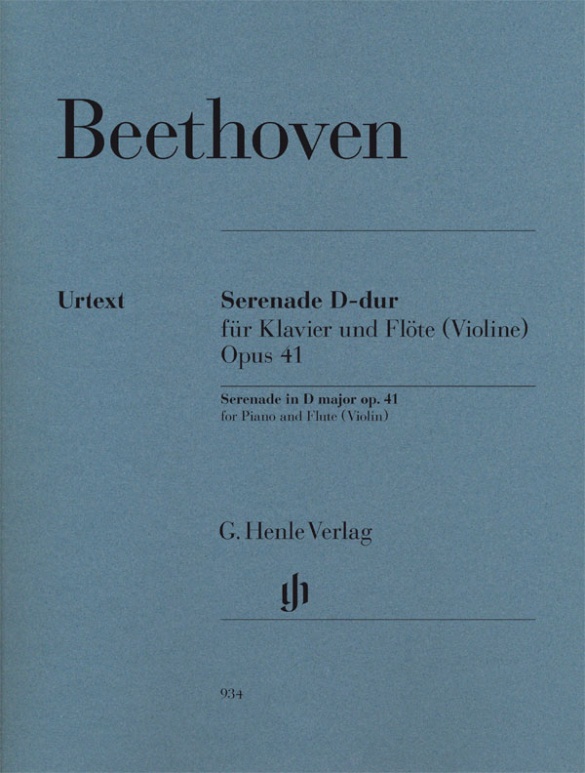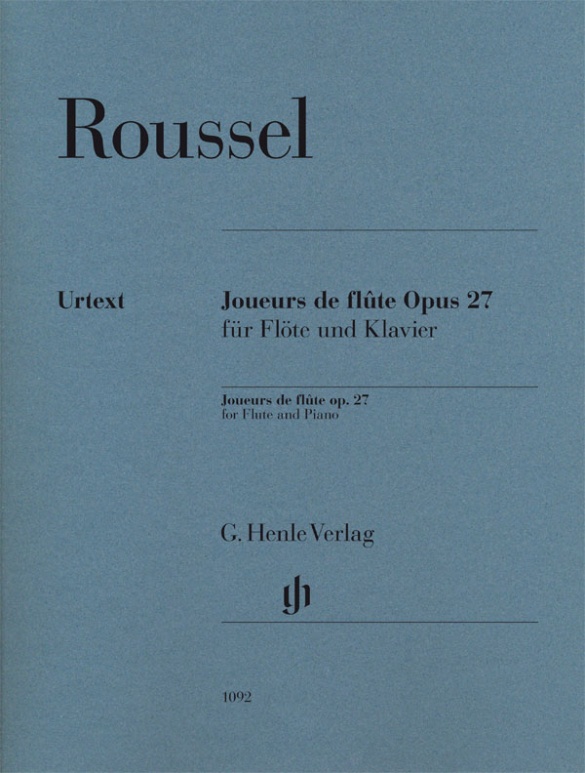

Albert Roussel
Joueurs de flûte op. 27 for Flute and Piano
The stimulus for this work, composed in 1924, was given by the French flautist Louis Fleury, who also gave the first performance of the work. The four single pieces “Pan”, “Tityre”, “Krishna” and “Monsieur de la Péjaudie” (a character of a novel by Henri de Régnier) attempt to depict the nature of these imaginary flautists from mythology, religion and literature.
Their specific cast is given by the sophisticated rhythm and striking harmony. It is fitting that this charming work has recently been enjoying increasing popularity.
Content/Details
About the Composer
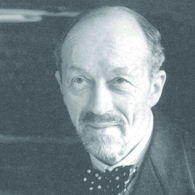
Albert Roussel
French composer. His biography is noticeably eclectic; aside from his belated musical career, he also completed a stint as a naval officer and was regarded as a talented mathematician. His multifaceted works traverse Expressionism and Impressionism to arrive at a mature, unique personal style. His extensive oeuvre includes stage works, symphonies, and chamber music.
| 1869 | Born in Tourcoing on April 5. |
| 1877–79 | An orphan, he is taken in by his maternal grandfather. |
| 1879 | After his grandfather’s death he is put under the care of his aunt. |
| from 1880 | He receives a musical education in his home town. |
| 1884 | Becomes a student at Paris’ Collège Stanislas. |
| from 1885 | Takes private lessons in piano from Jules Stoltz. |
| from 1887 | Trains as a naval officer at the École navale. On his travels he studies harmony and music theory on his own. |
| from 1893 | Studies music privately with Julien Koszul at the Roubaix Conservatoire. |
| 1894 | He is a composition pupil of Eugène Gigout in Paris. |
| 1898–02 | Completes his musical studies with Vincent d’Indy at the Schola Cantorum. |
| 1902–14 | He teaches counterpoint at the Schola Cantorum, his pupils including Roland-Manuel and Erik Satie. |
| from 1909 | The musical impressions of a journey to Southeast Asia lead to composition of important works like his “Évocations,” op. 15, or the ballet-opera “Padmâvatî,” op. 18. |
| from 1926 | Composes major works such as the Suite in F major, op. 33 and the Concerto, op. 34. |
| 1937 | Dies in Royan on August 23. |
About the Authors

Klaus Schilde (Fingering)
Prof. Klaus Schilde, born in 1926, spent his childhood in Dresden. There he was greatly influenced by Walter Engel, who taught him the piano (Kodaly method), composition and violin. From 1946–1948 he studied at the music conservatory in Leipzig with Hugo Steurer. After moving to the west in 1952 he studied with Walter Gieseking and Edwin Fischer, as well as with Marguerite Long, Lucette Descaves and Nadia Boulanger in Paris.
Schilde won numerous prizes. From 1947 onwards he gave concerts as a soloist and chamber musician on almost every single continent with renowned orchestras. He taught at the music conservatories in East Berlin Detmold, West Berlin, Munich, Tokyo (Geidai) and Weimar. From 1988–1991 he was President of the Staatliche Hochschule für Musik und Theater in Munich, where he also taught for decades as a professor. There are numerous radio and television broadcasts with Klaus Schilde as well as CD recordings. Schilde has contributed fingerings to almost 100 Henle Urtext editions.
Prof. Klaus Schilde passed away on 10 December, 2020.
Product Safety Informations (GPSR)

G. Henle Verlag
Here you can find the information about the manufacturer of the product.G. Henle Verlag e.K.
Forstenrieder Allee 122
81476 München
Germany
info@henle.de
www.henle.com
Mit der Urtext Edition aus dem Musikverlag Henle wird das Werk nun in einer ihm würdigen Ausgabe verlegt. Hier wird es mit ausführlichem Vorwort, das zur Entstehung und Interpretation wichtige Gedanken liefert, ausgestattet, ein Kritischer Bericht befindet sich in seinem Anhang und es liegt ein sorgfältig, angenehmer Notentext vor. Unbedingt empfehlenswert bei der Anschaffung des Stückes ist es zu dieser Ausgabe zu greifen.
Flöte aktuell, 2012recommendations
autogenerated_cross_selling
Further editions of this title


